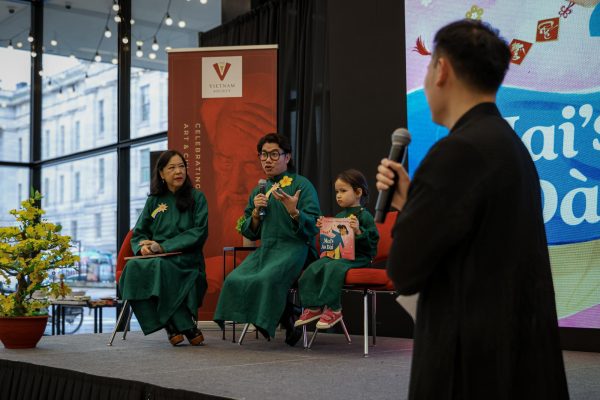AU’s Battle to Save Their Bees: Just Keep Buzzing
Andreas Elterich used to be afraid of bees. That was until he joined the American University Beekeeping Society (AUBS) and realized how important they are to the community, the economy, and ultimately, the world.
“It’s not like your average club,” Elterich said.
The beekeeping society has been around since 2011, when professor Eve Bratman, a professor in the School of International Service, founded it along with several AU students. Bratman said that originally the organization had only one hive on the roof of the SIS building, but they have added two more hives on the second floor of the Mary Graydon Center, known as “Game of Drones” and “Susan Bee Anthony.”
“It is the mysterious disease causing devastating losses to bee colonies all around the world.”
Members of the beekeeping society are the primary beekeepers for the hives, though according to Elterich, that is not all they do. The society also sells homemade lip balm and candle products made from the beeswax in the Davenport Coffee Lounge. New members are encouraged to participate from the beginning.
“I definitely want to get some hands-on experience with the hives,” said Yarrow Randall, a sophomore who joined this year. She believes the club needs more exposure for people to understand that its work with bees has become even more urgent in recent years, especially with the discovery of colony collapse disorder (CCD).
“It is the mysterious disease causing devastating losses to bee colonies all around the world,” Bratman said of CCD in her TEDx Talk on beekeeping. She says that in 1947, there were 5.7 million honeybee colonies in the United States, while today there are only 2.5 million. Those bees, Bratman said, are responsible for one-third of produce and produce-based products.
According to Bratman, the disorder may result when hives are invaded by varroa mites, a parasite that kills honeybees. Though AU’s hives have suffered from parasitic invasions, Bratman says that since AU uses all-organic vegetation management, they do not have to worry about the effects of dangerous neonicotinoid pesticides. According to Bratman, these pesticides are considered to be one of the leading causes for CCD.
Elterich says the beekeeping society receives funding from the university via a start-up Green Eagle grant and AU Club Council. Working with the society, AU has the opportunity to research the dangers of CCD and to help mitigate the havoc it wreaks on the food production system, though Bratman believes more could be done.
“I would love to see more research surrounding the bees,” she said.











